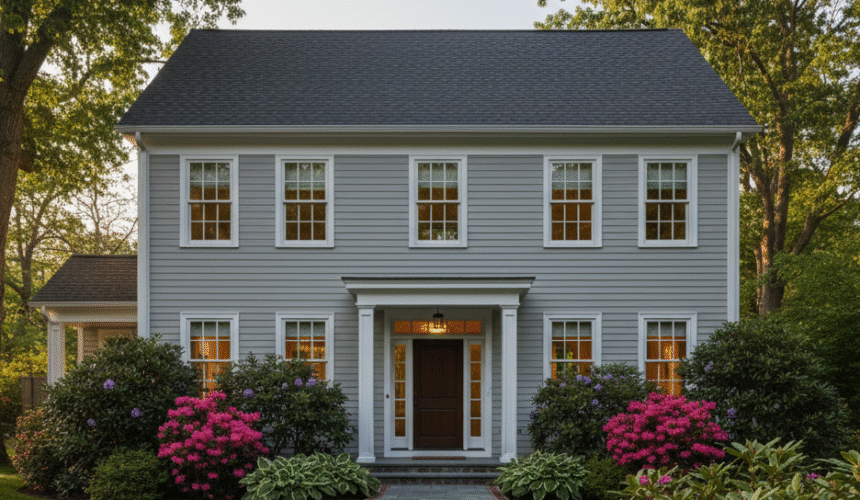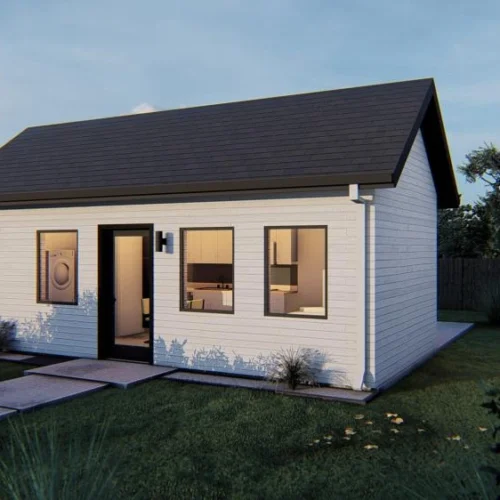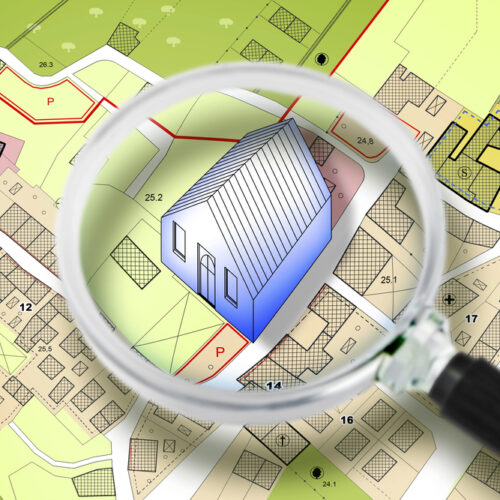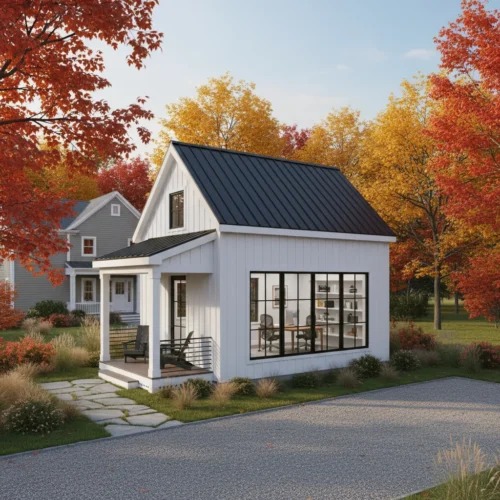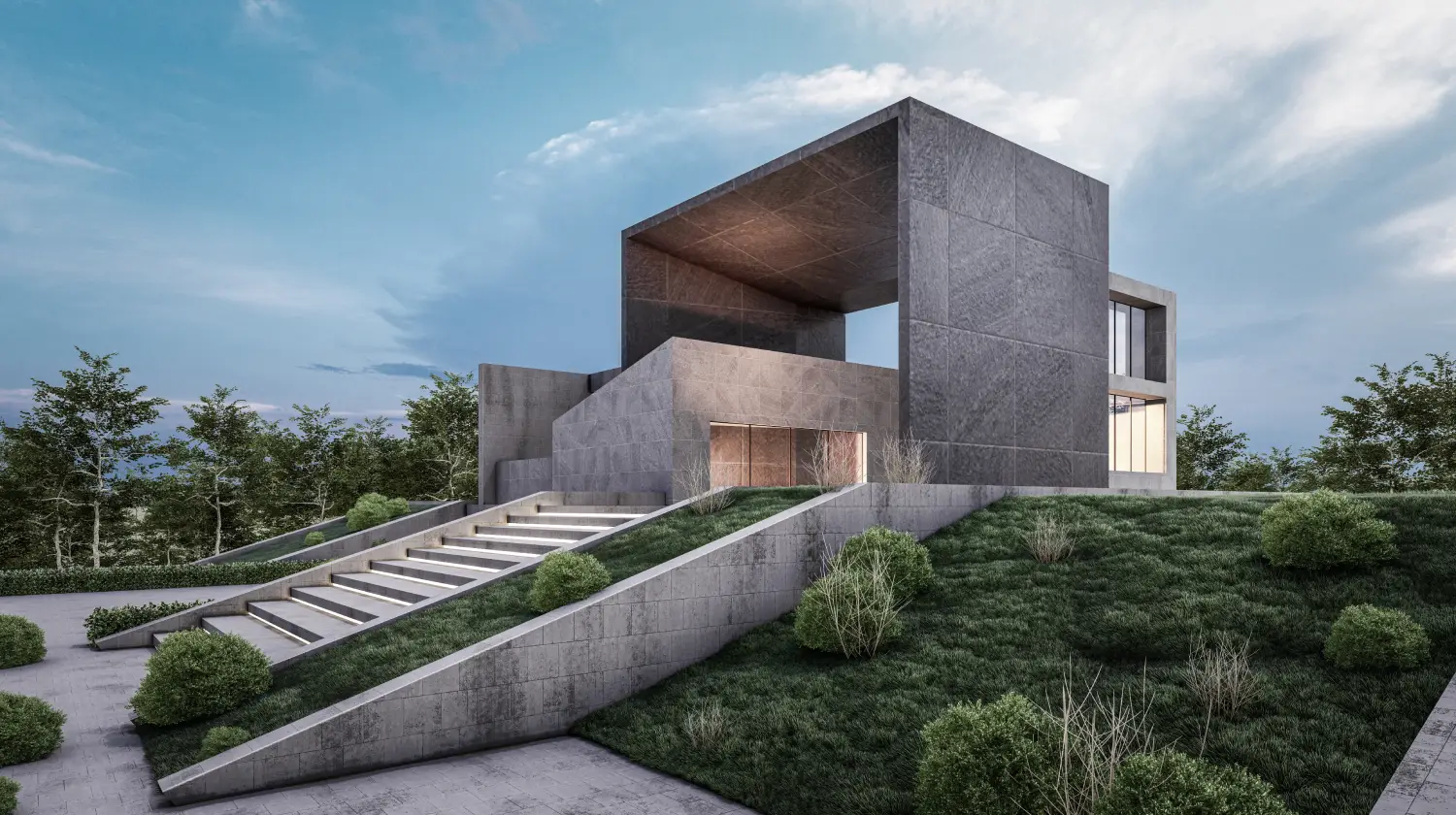In this episode, builder Dave Potter explains why ADUs are surging in Massachusetts. A 2025 statewide law makes a “protected” ADU legal by right, typically needing only a building permit and separate entrance. Size is capped at the lesser of 900 sq ft or half the main home, while some towns allow larger local ADUs. Detached units may trigger utility requirements. Demand is fueled by housing costs and multigenerational living, with parents swapping into the ADU while children use the main house. Potter adds that ADUs can boost resale and rentability, and that careful planning helps navigate setbacks and approvals.
John Maher: Hi, I am John Maher and I’m here today with Dave Potter. Dave has been a licensed builder and real estate developer since 1980 and he’s completed hundreds of projects in his career. Now Dave is specializing in accessory dwelling units or ADU in Massachusetts. Welcome, Dave. How
Dave Potter: Are you doing, John? Glad to be here.
Reasons ADUs Are Becoming So Popular
John: Yeah, great. Thanks Dave. So today, Dave, we’re talking about why ADUs are booming in Massachusetts. What do you think are some of the reasons why are becoming so popular? Maybe tell people a little bit about what ADUs are and if there are any sort of zoning or policy changes that are driving that demand.
Dave: Sure. ADUs accessory dwelling units, and that’s a fancy name for in-law apartments, additional apartments, even buildings that are actually built in your yard that are just for apartments or things like that. We’ve had these in Massachusetts for a long time. I remember growing up, I grew up in an Italian household and everybody had another apartment down in their basement or over their garage or something like that.
And the reason they had it wasn’t so much to rent it out or put another family member in, they had it just that they had a secondary kitchen. Kids could down there and make noise, secondary kitchen. They didn’t have to have smells going up into the main house. So, it always worked for families over the years to have this secondary apartment, secondary unit, accessory dwelling unit in the houses. The news now is that as a February of this year, the governor and lieutenant governor have made this.
They’ve run through a law that’s really, I love this law. They’ve made it legal to have an in-law apartment or accessory dwelling unit. There’s so many names for these granny flats. Hawaii calls them horner units. There’s a lot of names for these things, but the ADU is the actual legal nomenclature for this type of thing that you’re going to add onto your house. You can have it inside your house, you can have it added onto your house, put it over a garage. You can have a separate house if you have the room in your yard to do it. A lot of rules, regulations that came with it, but not as many as you’d think having a government be in charge of this. So, it’s actually a pretty cool law and I think it’s a great idea.
What Did the ADU Law Change?
John: So, what was the change from before? Were these types of units not allowed generally or what hoops did you have to go through in order to do something like that previously?
Dave: Well, for years I’ve done hundreds and hundreds of these. A lot of the houses that I built, I would actually put another unit in there. But the only thing is you could not put a stove because then all of a sudden it became another apartment.
But It was legal to put kitchen sink, some counters, a microwave even. But you could not put a stove, you could put a refrigerator there. And what happens is now you can put the stove and now you can legally rent it out. Whereas before you could not legally rent it out unless the certain towns and cities actually had an ADU type of law in their local zoning, which very few did. Salem was one of the leading ones to do that, but very few had this type of zoning that you could put an apartment in.
But now it’s legal in Massachusetts, not only legal, it’s highly encouraged to do it, which is a change in thought. And a lot of cities and towns may or may not like us, but they have to do it. It’s required by the state. And so, I think it’s a great thing that’s happening now and people should take advantage of this.
What Influenced the ADU Law Change
John: What do you think is influencing that change? Why is it that Massachusetts is now, like you said, encouraging people to do this?
Dave: Well, the main reason why the governor wants to do this is because of the housing crisis. There’s not enough apartments. The apartments that are there way too expensive. But the real thing that’s driving this, the real impetus to this is that the people are getting older. They have these three and 4% loans, they don’t want to sell their houses.
And that’s one of the reasons why you have such a housing crisis, because there’s no house for sale because people want to hold onto their three and 4% mortgages. And a lot of them are older people who actually do want to sell downsize, but they also have another problem. They have sons and daughters with grandkids that can’t find a house. They’d like to sell them their house, but they can’t afford it. They need to find another place and they can’t afford that to do both.
So, what they’re doing, this is a perfect, perfect solution for them. What they’re doing is they’re adding on an accessory dwelling unit, a basement apartment, an additional apartment, even a building in the yard and adding that on. And the parents are either moving in there and letting the kids and grandkids take over the main house. Or if it’s a college aged kid or somebody just graduating college or a younger person, they’re moving into this apartment and that way they can keep ’em close without being too close. And it’s a novel solution to a problem that’s going to get worse as we get older. And as the pricing gets higher and higher for the housing.
ADU Rules Change from Town to Town
John: Right. Now, you mentioned that certain towns might have different rules now, and this is coming from the governor. So does this apply to all of Massachusetts? Do towns have the ability to push back on that and say, no, we’re not going to allow that in our town? Or what’s the sort of situation on a town by town basis?
Dave: Town by town, they can add to it and have more. There’s two, there’s two types of ADUs. There’s ADU by right are protected ADU, which is what the state is saying. So, the towns and cities can’t say, no, you cannot put an ADU in your house. Right? However, they can say, okay, well you can have that ADU, and then you can do what’s called a local ADU. You can have more than one. You can have two ADUs in your single-family house.
People don’t know that you would have to get that approved. There’s certain towns that encourage it and certain towns that don’t want to see that. And it’s all driven by nimby, which is not in my backyard. And that’s the thing, what drives almost every zoning thing. I’ve seen it so many times being a developer, people moved into their brand house, brand new house, but they don’t want to have anybody build a brand new house next to them because they got theirs. So, why should anybody else get theirs?
Which is fine because you want to protect your privacy and all that. But the state has come down and said, there’s no wiggle room in this. There’s absolutely no wiggle room in this at all. The state says you can do a couple of things. The cities and towns can have a planning board whether you can go in there into front of the planning board and it can be site plan review, but it’s, they really keep your thumb on that can’t.
Once you reject it, if a town rejects an application, it automatically gets sent up to the governor’s office and they want to know why. So they’re really, really gung ho on getting these things approved. And I think bringing it out into the light and having people do this and do it legally and have it doing with a building permit and having the building commissioner or the inspectors come in and look at this and the fire department come and today and look at this, I think it’s overall a much safer situation than we had before.
Does an ADU Have to Be Attached to the Main House?
John: Are there limitations to the rule? Does the new ADU have to be attached to the main house or can it be separate from the house?
Dave: Either way, it can be attached, it can be part of the house, it can be a garage that’s in your backyard. It can be converted to an ADU. Either way. The rules sizing is one of the rules. If it’s a protected ADU, which in Massachusetts that’s what they called this ADU as of right in-law apartment or additional apartment as of right.
And if it’s protected, it can only be maximum 900 square feet and or half of what the house is, what the existing house is. Alright. There’s a lot of little room there and stuff like that. And there’s a lot of little different areas of interpretation there. But basically it’s half, if you have a 2000 square foot house, you can only build a 900 square foot house because half a 2000 square foot ADU, because half a 2000 is a thousand and that’s more than the 900. So, you have to go to the lesser of that. But if you have a 1500 square foot house, the maximum you can do is half of 1500, which is 750. You can’t go to the 900. You can go with seven 50.
John: So, 900 is the maximum no matter what?
Dave: Maximum, no matter what for a protected ADU. However, a local ADU, according to the state, if the town wants to go above and beyond the protected ADU and sometimes did, they’ve already had this in their zoning laws, protect zoning of local ADU can go up to 1200 square feet and you can also go larger if the city and town allows it. Not too many do, but that’s kind of that there. There’s a lot of little parts of the law that people don’t know. But being an ADU expert, I love this stuff I study.
Do You Have to Follow Rules for Setbacks?
John: Yeah, that’s your job to figure that out and be able to coach people and help them to understand what it is that they’re allowed to do within the rules. I imagine they still have to stay within setbacks from their property lines and things like that as well.
Dave: That depends. See, that’s the whole thing. People sit there. If you read the law and you only read the highlights of the law, you feel, oh, that’s what it has to be. But it’s not. If you have a preexisting non-conforming dwelling, say you’re a single family house, you need 20 feet, but your single family house is within 10 feet, you don’t necessarily have to live by the setbacks and the zoning change. You already have a preexisting non-conforming house. You can add onto that. And as long as you’re not making it more preexisting, more non-conforming on the preexisting non-conforming house, you can add onto it.
John: So, if your original house was allowed to go 10 feet from the property line, your ADU is allowed to go 10 feet from the property line?
Dave: Maybe. It all depends. It depends on the plan, it depends on a lot of other things. But you would have to go in front of a planning board now if you wanted to even push it further, there is an allowance to go in front of the zoning board of appeals and ask them for a special permit. Okay. Zoning board of appeals is always, no matter what you’re doing, there’s always a crap shot because you’d have one neighbor from another part of the city of the town come up and give you a hard time and then you kind having issue but doing within the rules and they fuel. But not a lot of the ADU is easy.
Main Reasons People Want ADUs
John: So, you mentioned that a lot of people are doing this because they’re aging and maybe they want to give their house or sell their house to their children and then live in an in-law type of apartment. Do you see that as being the main focus of ADUs now as family housing like that? Or do you see a lot of people also using it as a rental property?
Dave: Surprisingly, I see the family aspect of it being the main driver. And I see as a developer who I’ve built houses, I’ve renovated houses, a lot of houses, a lot, a lot of houses in the past, one of the things I would do is always try to put an ADU in it no matter where it is. I just did one project in Lynn and I put an ADU on it, and I’ll tell you about that later on. But when you put these things in, what happens?
You open it up to a family that wants to move in, but they have their mother or father, usually the mother that they have to take care of that’s giving them the money for the down payment. And if it has an ADU already in it, they love it because the mother can move in, they can watch her, she can watch the grandchildren. If she gets older and maybe has a little bit of health issues temporarily, then they can be there to watch her and make sure, but she also has her privacy, she also can, it’s a great win-win situation for everybody.
John: Right? You’re there where your family can help take care of you, but at the same time it’s separate enough that you feel like you have your own place.
Dave: Right? Exactly. And one of the things about adding an ADU or an in-law apartment, an additional apartment onto your house, is that it increases the property value of your house substantially. Did this project in Lynn, I bought the house and my target price was $650,000 when I sold it, there was a walkout basement, it was perfect. There was already plumbing down there for this really rinky-dink bathroom.
So, I ripped the whole place apart down there and I put in an ADU, I put in a studio apartment with the kitchen, with the bathroom, with everything there. And it cost didn’t cost much because I’m a builder and it only cost me maybe $50,000, but I go on an extra $150,000 when I sold it. I think that’s a pretty good, that’s the greatest return on investment that you could ask for 150% return on investment. That’s crazy. That’s great.
John: Absolutely. Alright, well that’s really great information, Dave. Thanks again for speaking with me today.
Dave: Thank you.
John: And for more information about Dave and ADU projects in Massachusetts, you can visit davepotteradu.com or call 66-BUILD-ADU. That’s 662-845-3238.

